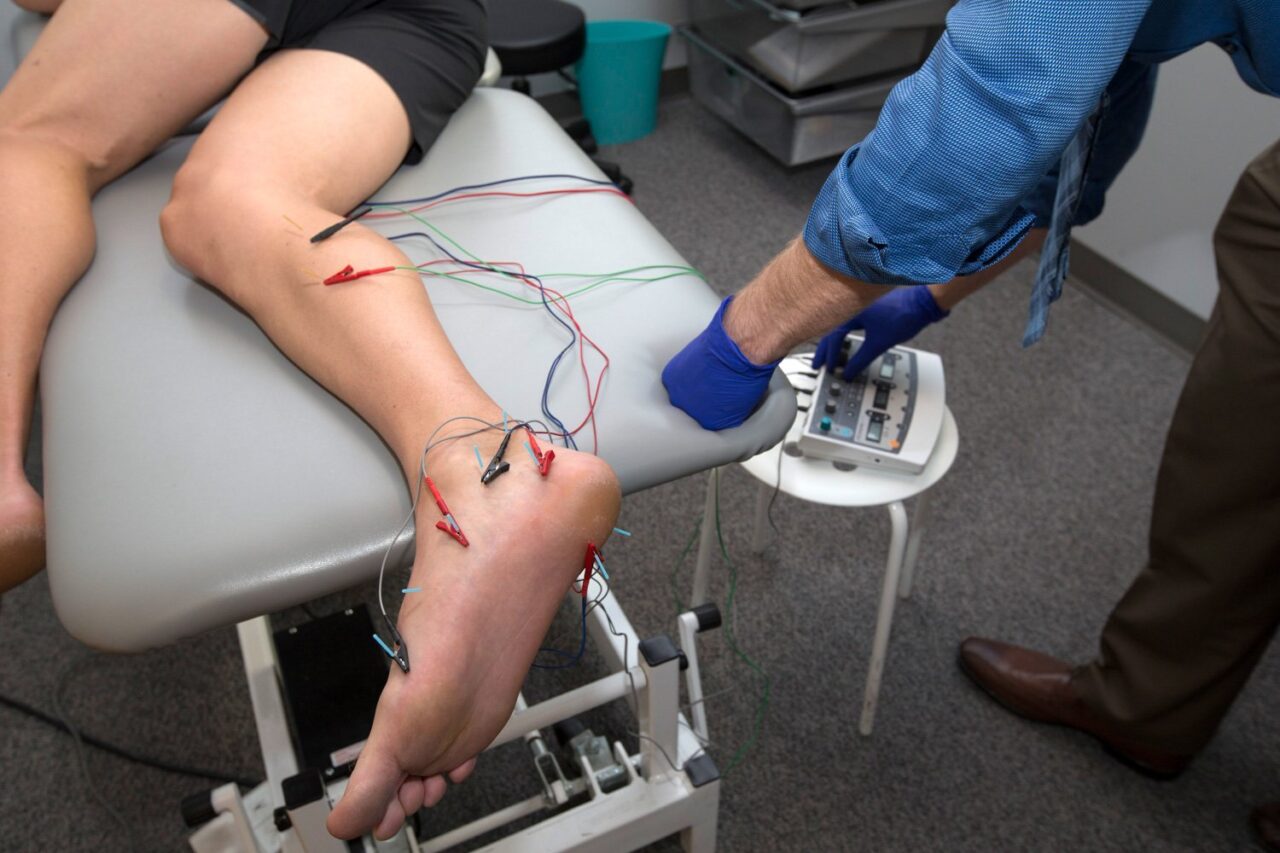Dry needling is an intervention commonly utilized by our Boulder Physical Therapy and Lafayette Physical Therapy clinicians to treat muscle pain and tightness secondary to trigger points or taut bands of muscular tissue. Authors continue to research what causes trigger points and why they cause symptoms. Current evidence describes abnormal circulation as the taut muscle fibers compress adjacent blood vessels and lead to reduced blood flow and oxygenation of the affected tissues. This in turn leads to pain and symptoms due to accumulation of metabolites and a general increase in the acidity of the tissue.
Dry needling interventions have been shown to both improve circulation to trigger points normalizing the tissues, as well as, normalizing the interface between the nervous system and the muscle. This effect can be noted by “twitch responses” associated with needle insertion and manual manipulation of the needle. Recently, authors have begun to study how the addition of electrical stimulation to dry needling may improve muscular or myofascial pain. A recent review of the evidence explains the beneficial mechanisms behind electrical stimulation with dry needling.
Perreault and colleagues reviewed the existing medical literature on utilization of electrical stimulation with dry needling (Journal of Clinical Medicine. 2022). Authors included 4 studies which met their criteria for the review of beneficial mechanisms behind this treatment. Authors noted significant variation in the utilization of electrical stimulation and the parameters used by clinicians with their dry needling. Authors reported preliminary evidence on the beneficial effects of dry needling with electrical stimulation including: increased blood flow, enhanced brain and spinal cord neural processing, and reduced nerve muscle end plate noise. These latter two mechanisms are important aspects of our descending pain modulation system.
Click Here to schedule your next appointment with the experts at MEND

